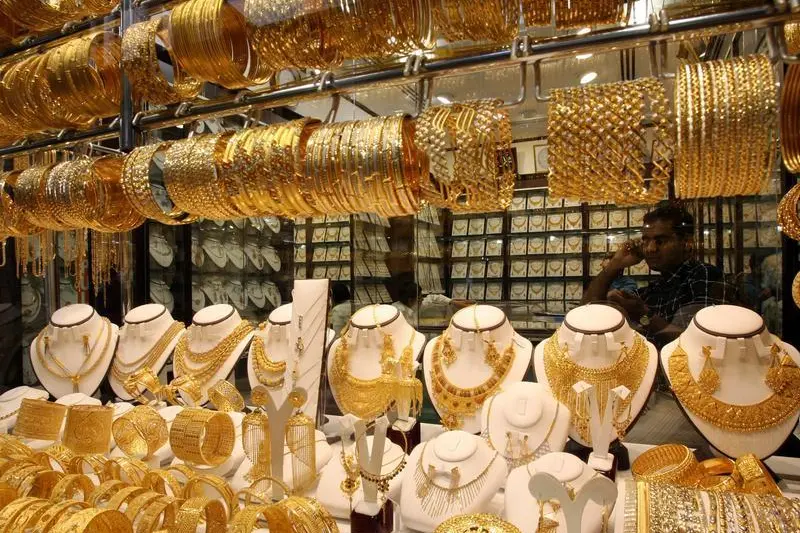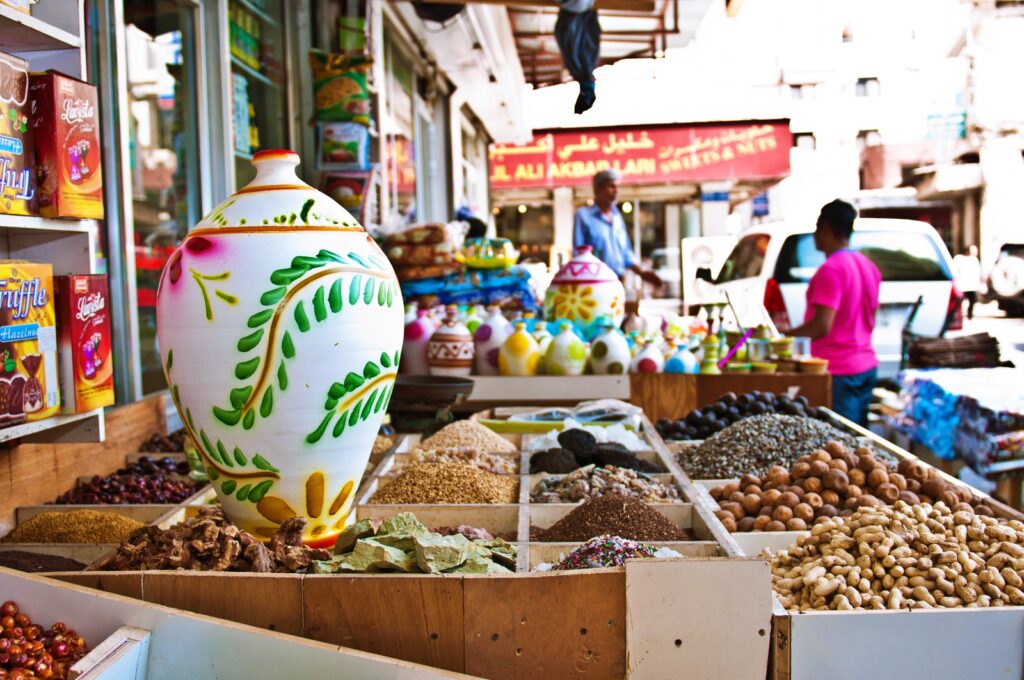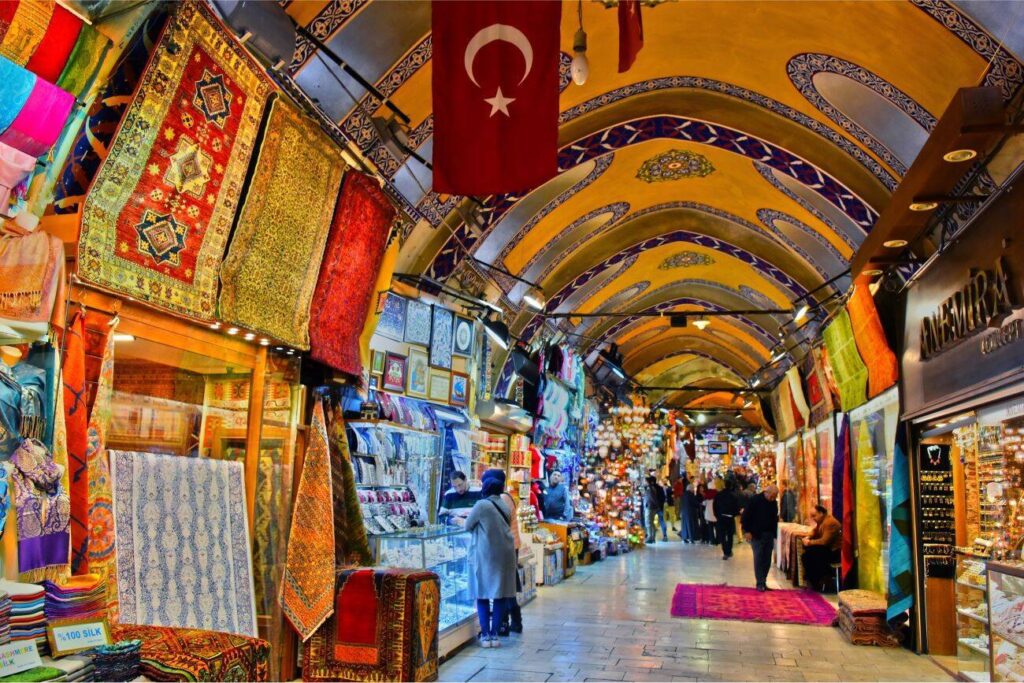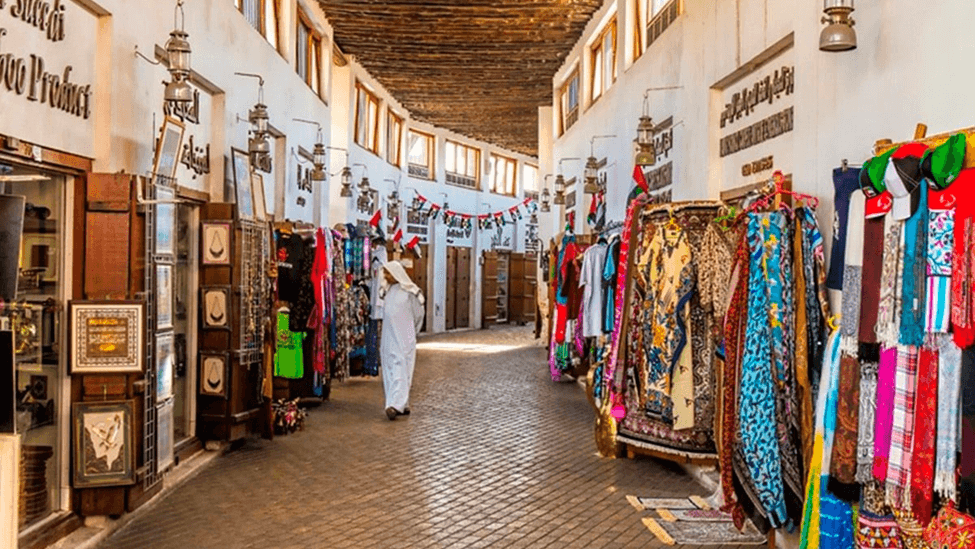When you think of the Gulf region, images of skyscrapers, luxury hotels, and shopping malls often come to mind. But beyond the modern shine lies a rich and colorful world that tells the story of centuries-old traditions—the souks and bazaars.
These traditional markets are the heart of many Gulf cities, where locals and tourists come together to buy, sell, and experience the real flavor of Arabian life. From the scent of spices in the air to the sound of shopkeepers calling out their best offers, every souk is an adventure waiting to happen.
What Are Souks and Why Are They Special?
Souks, also known as bazaars, are open-air markets or covered alleyways filled with small shops and stalls. They have existed for centuries and were once important trade centers in the Arabian Peninsula. Traders from Africa, India, and the Far East used to pass through these markets, bringing goods like spices, silk, gold, and perfumes.
What makes these markets unique is their lively atmosphere, historic charm, and wide variety of products—from handmade crafts and carpets to traditional clothes and fresh herbs. Many of these markets are still active today and are a big part of the Gulf’s cultural identity.
Top Souks to Visit in the Gulf Region
Whether you’re visiting the UAE, Oman, Qatar, or Saudi Arabia, each country has its own famous souks that are worth exploring. Here are some of the most popular ones:
1. Dubai’s Gold and Spice Souks
Located in Deira, Old Dubai, the Gold Souk is a glittering maze of shops displaying gold jewelry in every shape and size. Even if you’re not planning to buy, it’s fascinating to walk through and see such a stunning display of craftsmanship.

Just next door is the Spice Souk, where you can smell and see mounds of colorful spices, dried flowers, and herbs. From saffron to cinnamon, you’ll find exotic flavors and friendly vendors ready to explain how each spice is used.
2. Souq Waqif in Doha, Qatar
This famous market is one of the best places to visit in Doha. Souq Waqif is a restored traditional market that blends the old with the new. You’ll find narrow lanes full of shops selling fabrics, souvenirs, spices, and even falcons and traditional pets.
It’s also a great spot for food lovers. From Arabic coffee to grilled kebabs, there are plenty of restaurants and cafes where you can relax and watch the world go by.
3. Mutrah Souq in Muscat, Oman
One of the oldest markets in the Gulf, Mutrah Souq sits by the sea and welcomes visitors with its wooden roofs and winding paths. It’s known for selling Omani frankincense, silver jewelry, traditional daggers (known as khanjars), and hand-woven textiles.
Walking through Mutrah feels like stepping back in time. The smell of incense fills the air, and the gentle sounds of traders chatting create a calm yet exciting energy.
4. Manama Souq in Bahrain
Right in the heart of Bahrain’s capital, Manama Souq offers a mix of old and new. Traditional shops sit beside modern boutiques, giving you the best of both worlds.

This souk is especially known for selling pearls, perfumes, and Bahraini sweets. If you’re lucky, you might even find a hidden tea house where locals gather for a quiet cup of tea and stories.
5. Al Zal Market in Riyadh, Saudi Arabia
One of the most traditional markets in Saudi Arabia, Al Zal Market is a hidden gem. Located in the old part of Riyadh, it’s famous for selling antiques, carpets, swords, and traditional clothing.
If you visit on a Friday, you can catch the open auction, where rare items are sold to the highest bidder. It’s a unique experience that gives you a real taste of Saudi culture.
Why Tourists Love Souks

Tourists from around the world are drawn to these markets because they offer a truly local experience. Unlike modern shopping malls, souks are filled with personal interactions. You can talk to the sellers, learn about the history of their goods, and even try your hand at bargaining.
Most souk sellers welcome friendly haggling. It’s part of the culture and adds fun to the shopping process. Whether you end up buying something or not, the experience itself is memorable.
Souks are also great places to find one-of-a-kind souvenirs. From handmade pottery to locally made perfumes, you’ll take home something special that tells a story.
How to Make the Most of Your Visit
Visiting a souk for the first time can be a bit overwhelming, especially if you’re used to quiet, air-conditioned malls. Here are a few tips to help you enjoy the experience:
- Go early or late: These markets can get very crowded and hot during the afternoon. Morning or early evening is usually the best time.
- Wear comfortable clothes and shoes: You’ll do a lot of walking, and the pathways can be narrow or uneven.
- Bring cash: While some shops accept cards, many smaller stalls still prefer cash.
- Don’t be shy to bargain: Start by offering about 60–70% of the asking price. Keep it polite and friendly.
- Be respectful: Many souks are located in conservative areas, so dress modestly and follow local customs.
Preserving the Culture of Souks
In recent years, there has been growing interest in keeping traditional souks alive. Governments and local communities are working together to restore old buildings, support small business owners, and promote cultural tourism.
These efforts are important because souks are not just places to shop—they are places where stories are told, traditions are kept, and heritage is passed down.
As younger generations grow up in a digital world, visiting these markets helps them reconnect with their roots and understand the value of face-to-face trade.
Final Thoughts
The souks and bazaars of the Gulf are more than just marketplaces—they are living museums of culture, trade, and tradition. Every corner holds a surprise, every scent carries history, and every interaction teaches you something new.
So next time you visit a Gulf country, skip the mall for a day and lose yourself in the colorful chaos of a traditional souk. Whether you leave with a bag full of spices or just good memories, the experience will stay with you forever.
Also read: How Gulf Cities Are Transforming Travel for Tourists With Disabilities



